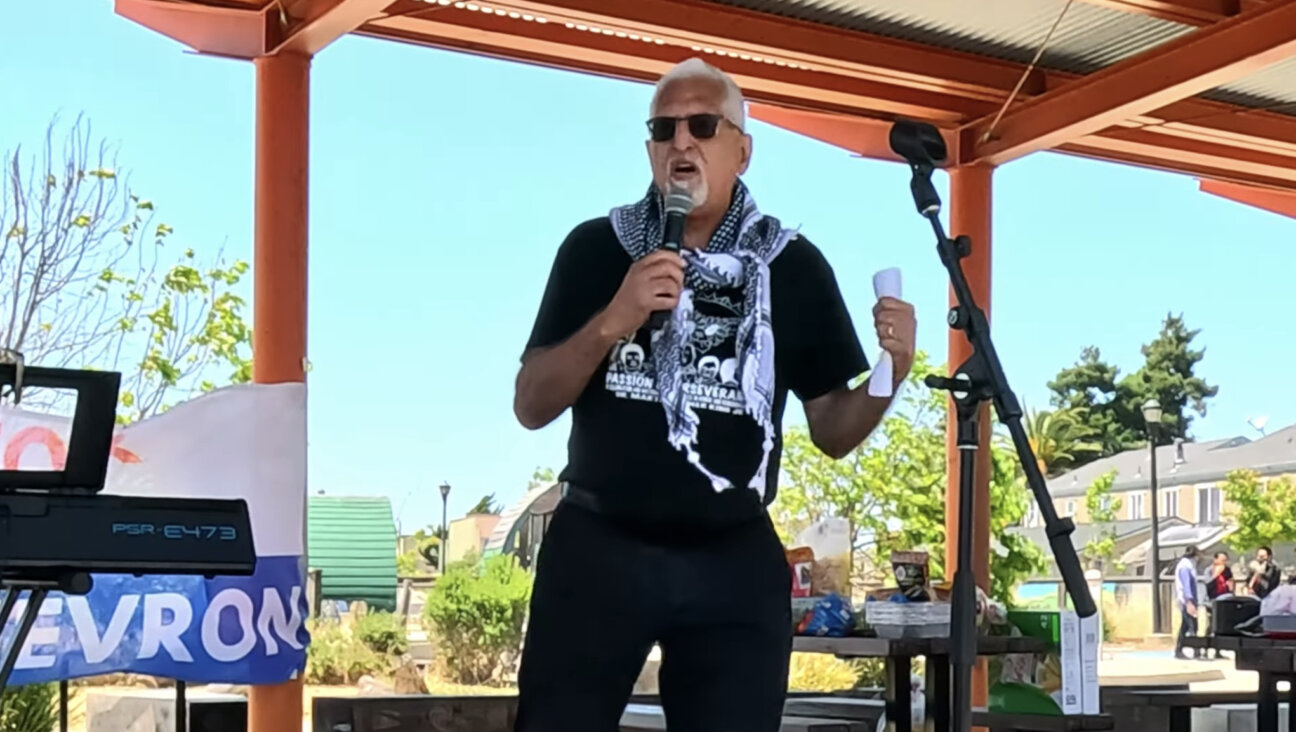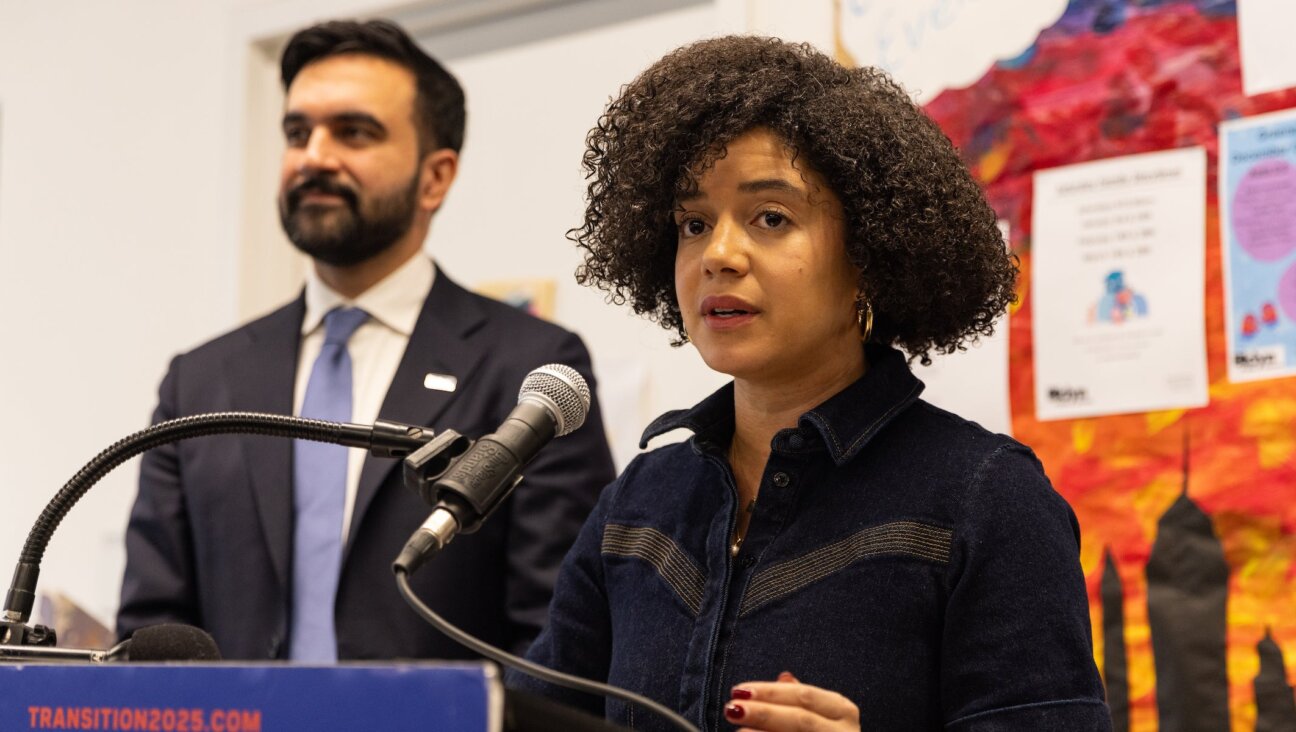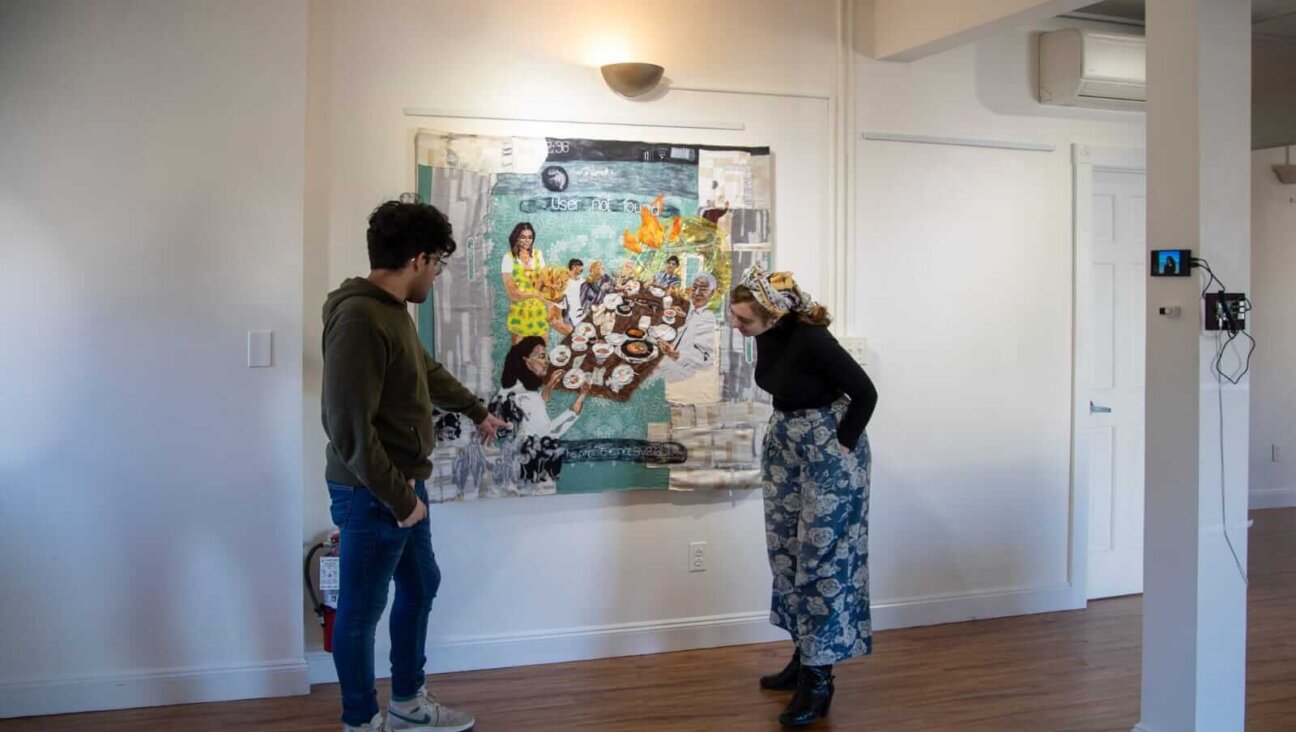Rabbi Judah Nadich, Eisenhower Adviser
Rabbi Judah Nadich, an adviser to Dwight Eisenhower on Jewish affairs and later a prominent New York rabbi, died Sunday. He was 95.
Born in Baltimore in 1912, Nadich was ordained by the Jewish Theological Seminary in 1937. In 1942, he enlisted as a chaplain in the Army and was the first American rabbi to be a chaplain in the European Operations Theater.
He was based in Paris after the liberation of the city in August 1944, where he served at the Office of the Theater Chaplain. This central position allowed him to inform American Jewish organizations about the plight of France’s Jews. He also became an unofficial spokesman on Jewish affairs for American news correspondents.
In 1945, he was appointed as General Dwight Eisenhower’s adviser on Jewish affairs. Thanks to this position, Nadich visited several Jewish refugee camps in Germany, where he witnessed the bad conditions under which Jewish displaced persons were living. After Nadich issued a report on these refugee camps, Eisenhower ordered commanders to treat displaced persons more humanely and to provide them with adequate housing and food.
“His presence was extremely important…. Jews needed an advocate and Nadich was at the right place at the right time,” said Alex Grobman, the author of “Rekindling the Flame: American Jewish Chaplains and the Survivors of European Jewry.”
This experience with Holocaust survivors had a major impact on Nadich. “It was the defining time in his life,” his daughter Leah Meir told the Forward. “He always maintained the memory of the threat to the survival of the Jewish people. His life was dedicated to making sure that the Jewish people not only survived, but became stronger.”
When he came back to the United States after the war, Nadich got married and resumed his career as a rabbi. He served at Congregation Knesset Israel in Brookline, Mass., for 10 years and at the prestigious Park Avenue Synagogue, in New York, from 1957 to 1987.
Under his leadership, the Park Avenue Synagogue, a Conservative congregation, was at the forefront of the fight for equal participation of women in religious life. Nadich also helped develop a strong educational after-school program, which is now called the Rabbi Judah Nadich Hebrew High School.
Peter Geffen, who went on to found the Abraham Joshua Heschel School, started working with Nadich on the after-school project at the age of 21. He says that the rabbi supported him in his defense of progressive causes.
“In the late ’60s, at a time when synagogues were losing teenagers, Judah understood the need to communicate with young people,” Geffen said. “His experience in Europe influenced his deep convictions about justice and equality.”
In his later years, Nadich remained active in the Jewish community and was on the board of several institutions, including the Heschel School, the Jewish Theological Seminary, the 92nd Street Y and JBI International, formerly the Jewish Braille Institute. Nadich is survived by his wife Martha Hadassah; three daughters, Leah, Shira and Nahma, and several grandchildren.















